- News
- Events
- Oneg Shabbat
- Collections
- Research
- Exhibitions
- Education
- Publishing Department
- Genealogy
- About the Institute
- Bookstore

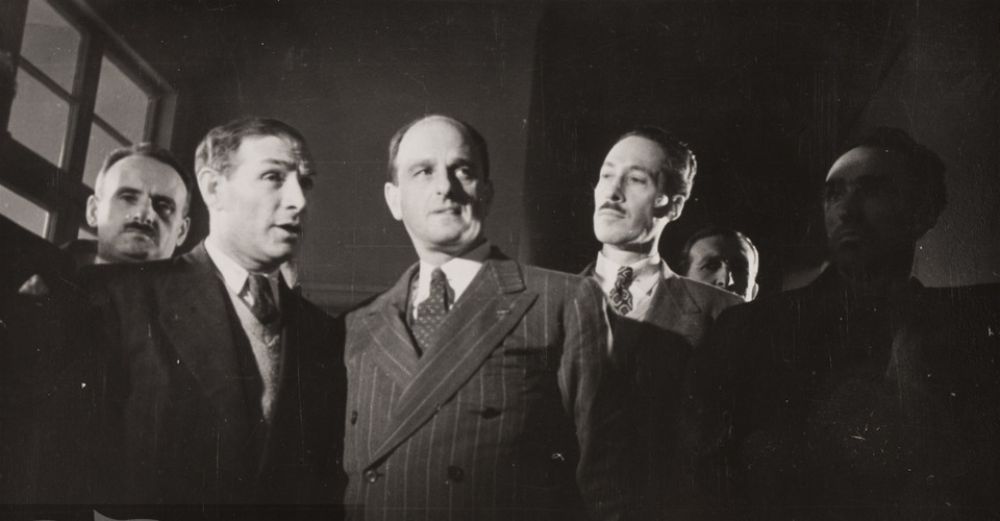
The name Berman does not have a positive connotation in Poland. The grim glory of Jacob, organizing criminal apparatus of repression under Stalin’s rule, overshadowed the memory of his younger brother, whose merit and bravery can not be questioned. Today marks the 98th birth anniversary of Adolf Berman, so it is the opportunity to recall what kind of person he was.
Born in 1906 in Warsaw, Adolf Berman studied psychology, history and philosophy. His master’s work, presented for defense in the middle of 1931 was considered to be a doctoral thesis and therefore he was immediately granted the appropriate title. In the following years he worked in school, conducted his own research and was implementing a system of career counseling which was pioneering in Poland. The attitude that he adopted towards the dramatic challenges faced by the Jews after Nazi Germany had invaded Poland resulted in a widely unknown scientist becoming one of the most important figures in the Jewish community in Warsaw.
Since 1940, he functioned as a deputy director and then director of the Society for the Protection of Jewish Children „Centos”, one of the most important organizations in the ghetto. Recalling his activity after the war, he wrote:
„Through great effort we managed to create a large network of social care institutions and they included a relatively large number of children. It is obvious that the process of economic collapse and the impoverishment of the population took place much faster than the development of protective actions, which in effect was not able to fix problems or even mitigate them. It was not possible to provide childcare to many thousands of new orphans, victims of the terrible mortality, hunger and epidemic, or to solve a pressing problems of „street children.”
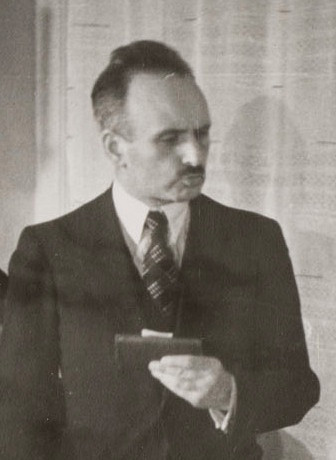
Berman, a member of the leftist wing of the Zionist Poale Zion Party, was one of the founders of the Anti-Fascist Bloc, set up in the ghetto in March 1942. On 22nd July of the same year, the Germans began the great liquidation action, in which 300,000 Warsaw Jews, including almost all of the children of „Centos”, were deported to the Treblinka extermination camp. After the action which lasted two months, Berman, who himself had several times miraculously escaped from the Umschlagplatz, decided to get out of the ghetto with his wife and hide on the”Aryan side”.
On the other side of the wall, in contacts with the underground Polish authorities, Berman represented the Jewish National Committee, a political representation of the ghetto residents preparing for an armed combat. He urged the Home Army command to send Jewish fighters weapons, and after the outbreak of the uprising he informed the Government Delegation about the situation in the fighting ghetto.
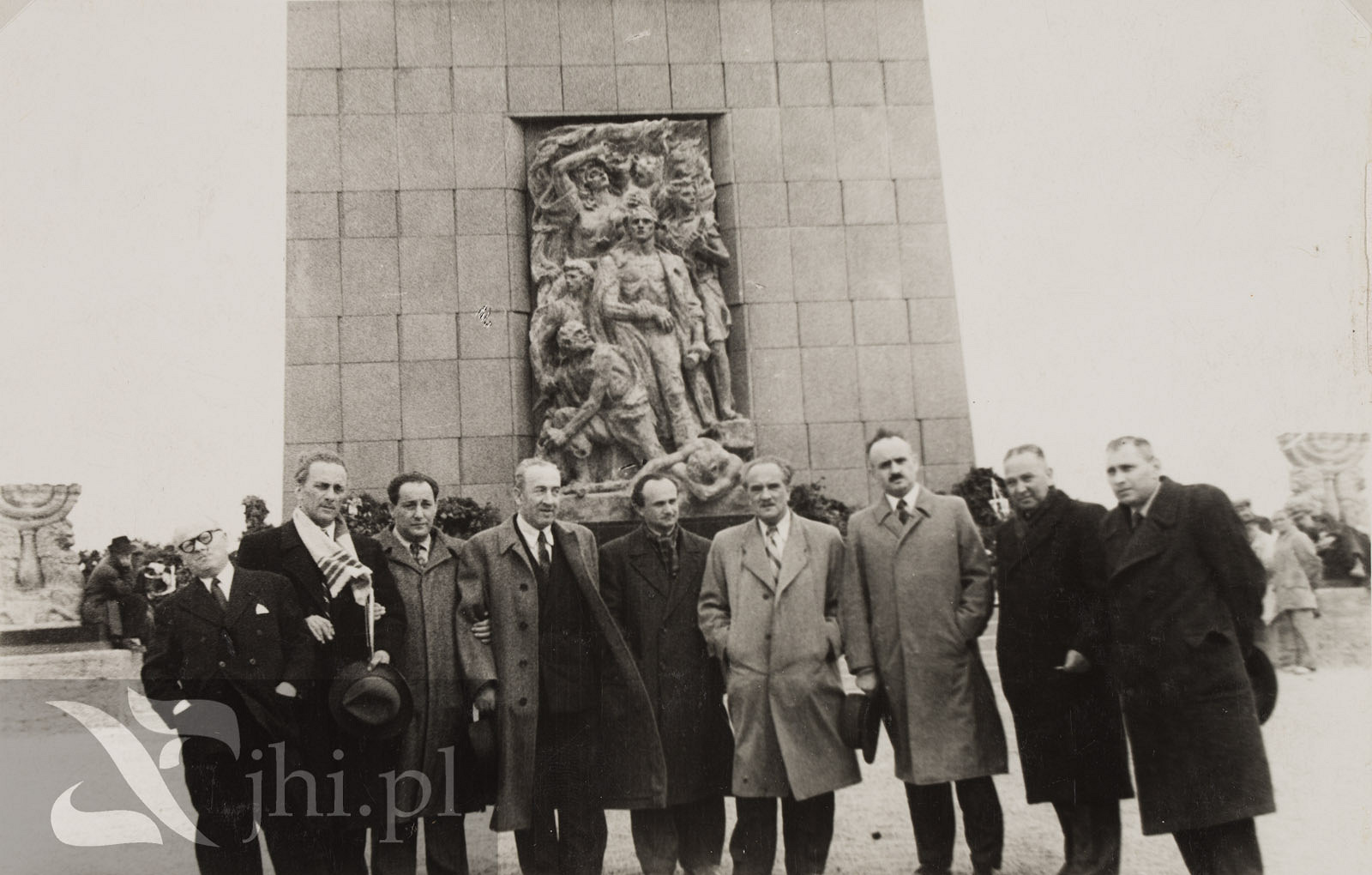
As a representative of the Jewish National Committee he became a member of the executive committee of the Council to Aid Jews „Żegota”. He and his wife helped the Jews living on the „Aryan side” by finding hideouts for them, being an intermediaries in arranging false documents and allocating grants. He was also in touch with the founder of the Underground Archives of the Warsaw Ghetto, Emanuel Ringelblum, who in February 1943 was hiding with his family in an underground bunker at Grójecka 84. On 7th March, 1944 due to denunciation, the shelter was discovered by the Gestapo and 30 Jews hiding there along with the Marczak’s who were taking care of them were shot to death. Before that, Ringelblum had given Berman part of his works written in the bunker, among which there was a lengthy essay on Polish-Jewish relations during the Second World War. This text is stored in the Archives of the Jewish Historical Institute.
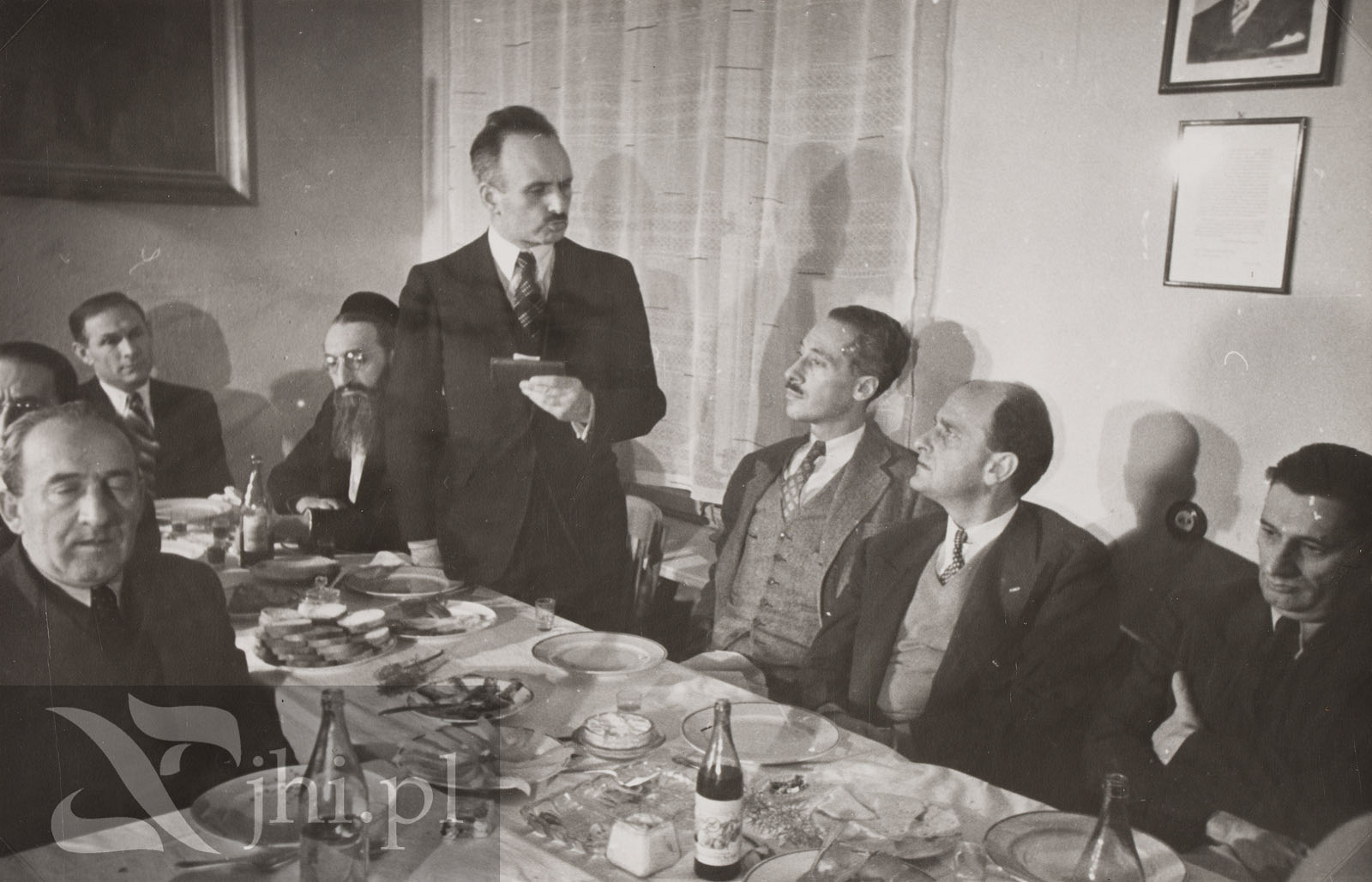
Because of the functions he had, Adolf Berman travelled a lot around Warsaw. For a Jew living on the „Aryan side” it was extremely risky, even if, like Berman, he had „good looks”. In January 1944 the Berman’s fell into the hands of szmalcowniks [blackmailers].
„At the corner of Aleje Jerozolimskie came up three fellows,” wrote Basia Bermanowa in her journal. „With guns and shouted: „You’re Dr. Berman”, felt him, then, poking, dragged to the police station. There, it seemed to be the final act. They were to take him to Szucha street; they frisked and threatened him, but after a half an hour of rows, they relented and when he offered money, haggling began.”
Ransom was paid by „Żegota” and the Jewish National Committee. Berman’s apartment, not for the first time, was „burned”, and for safety reasons, for some time, they had to limit the scale of their underground work. Six months later, Adolf Berman took part in the Warsaw Uprising.
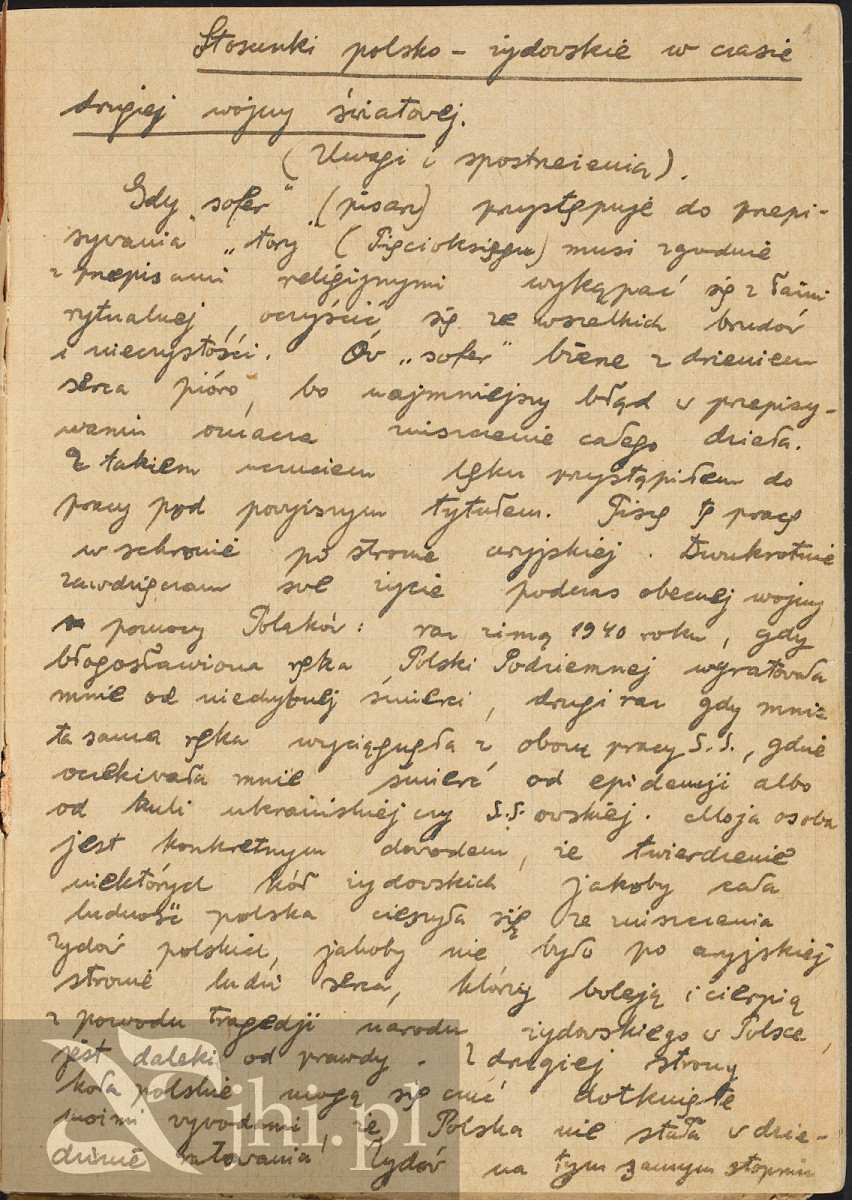
After the war, Berman served as Vice-Chairman, and then Chairman of the Central Committee of Polish Jews, an organization representing the Jews who survived the Holocaust. He was also a member of the State National Council. In 1950, in the face of more extensive marginalization of CKZP and its limited autonomy, Berman decided to move to Israel. He worked there as a politician and journalist. He died in 1978 in Tel Aviv.